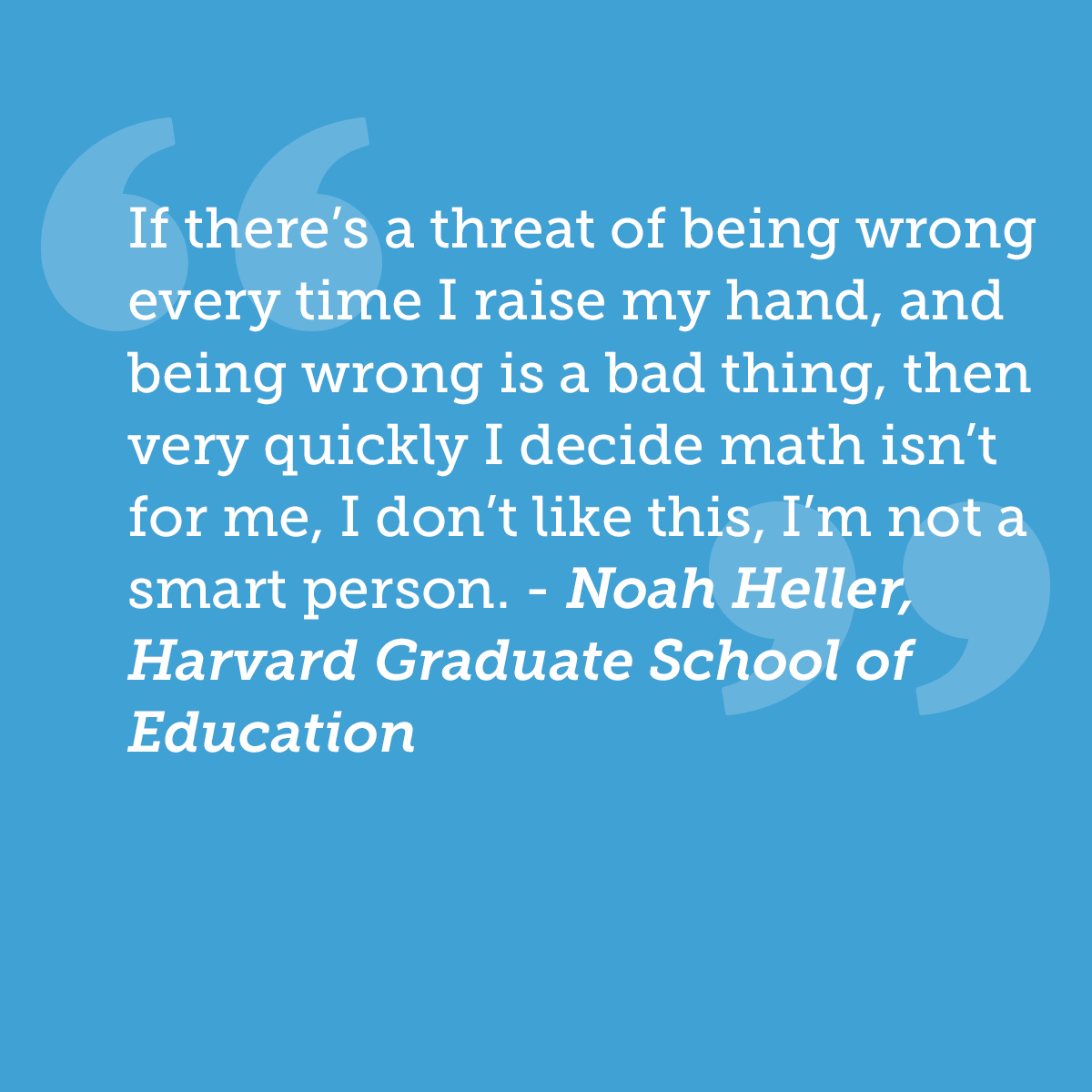
November 10, 2016 | By Leah Shafer
This article originally appeared on Usable Knowledge from the Harvard Graduate School of Education.
We’ve all seen it happen to a child confronting long division, or a teenager grappling with geometry. We’ve even done it ourselves. The frustrated pencil drop, the defeated shoulder slump, and finally, the resigned proclamation: “I just can’t get this. I’m not a math person.”
But what does being a “math person” really mean? And more important, how can teachers help every student feel prepared and excited to tackle new concepts in mathematics?
According to HGSE Lecturer Noah Heller, the idea that there are “math people” and “not math people” is a social construct and not based on inherent characteristics. It stems from the belief that math intelligence is a fixed trait, rather than something that grows and develops with hard work and opportunities to learn. But the notion of a “math person” is still a useful one for math teachers to consider when trying to develop lessons and classroom norms that foster perseverance in all students.
Forced Into Mathematics
When students proclaim that they’re “not ‘math persons,’ that’s an indication that they feel outside of mathematics, that math doesn’t belong to them,” explains Heller, the master teacher in residence for mathematics at the Harvard Teachers Fellows Program. “They feel like the math learning expected of them is something that they’re forced to do and memorize, or a way in which they’re asked to conform their thinking or cram for examinations. When students say they’re not ‘math persons,’ they mean that they don’t see mathematics as a useful practice that can help them interpret and navigate the world.”
Developing a Mind for Math
 Math intelligence — and therefore the traits of a “math person” — can be nurtured and enhanced, Heller says. Teachers can take steps to help students develop a growth mindset — the view, popularized by Stanford psychologist Carol Dweck, that it takes determination and persistence to achieve success (in math, in this case), not innate talent. Heller outlines some of those mindset-changing steps here:
Math intelligence — and therefore the traits of a “math person” — can be nurtured and enhanced, Heller says. Teachers can take steps to help students develop a growth mindset — the view, popularized by Stanford psychologist Carol Dweck, that it takes determination and persistence to achieve success (in math, in this case), not innate talent. Heller outlines some of those mindset-changing steps here:
Above all, to succeed in math classes and to feel motivated to pursue mathematics-related careers, students need to feel comfortable with and excited about mathematics — they need to feel like they, too, are math persons.
Additional Resources
To read more research-based articles on education, visit Usable Knowledge.